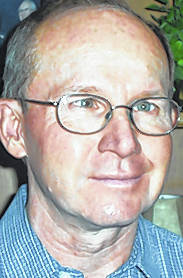Two good ol’ boys, with obviously too much time on their hands, were trying to decide what was the greatest thing ever invented. After arguing back and forth, Robert Joseph, aka Bobby Joe, smiled and said, “I’ve got it!”
He continued, “The greatest thing ever invented was the thermos bottle!”
“The thermos bottle?” countered his buddy, shaking his head in disbelief. “All it does is keep hot things hot, and cold things cold.”
“Yeah,” replied Bobby Joe, “but how does it know?”
I’ll have to admit the thermos bottle is pretty neat, but it’s far from the greatest thing ever invented. Starting from the wheel of ancient times to the internet of today, there have been countless number of inventions which have made our lives better. (I’m not certain if the internet will end up making our lives better or not.) But there has been one invention that I know for certain has made our lives better, especially here in the South.
Air conditioning.
In 1902, the modern air conditioner was invented by Willis Carrier. He developed his device he called the Apparatus for Treating Air for the Sackett-Wilhelms Lithographing and Publishing Co. in Brooklyn, N.Y. The machine would blow air over cold coils to control room temperature and humidity, keeping paper from wrinkling and ink aligned. Finding that other factories want to get in on the cooling action, Carrier established the Carrier Air Conditioning Company of America.
In 1906, Stuart Cramer, a textile mill engineer here in North Carolina, created a ventilating device that adds water vapor to the air of textile plants. The humidity made yarn easier to spin and less likely to break. He was the first to call this process “air conditioning.”
Today, we take air conditioning for granted, unless the electricity goes out. But most of my generation can remember at least part of our childhood being without it. When I was real young, I played with my toy cars and soldiers on top of the small circular floor fan in the den, trying to keep cool, while watching cartoons or “Lassie.” On hot summer nights, I would sleep at the foot of the bed, hoping to catch any breeze coming in the bedroom window. Part of the attraction of going to the movies in the summer was that the theatre was air conditioned and cool. We got a window air conditioner when I was around ten years old, which made summers much more bearable.
Think of how much the South and the Sunbelt have grown since the end of World War II. In 1950, only 28 percent of the U.S. population was located in the Sunbelt. By 2000, that total was over 40 percent. Do you think all of those Yankees would have moved down here if we didn’t have air conditioning?
But now that great invention may be causing a problem. Remember when we were told that the COVID-19 virus would just go away this summer? That people being outside and the heat and humidity would slow down the virus? Well, obviously that hasn’t happened, especially down here in the Sunbelt states.
Why? There are plenty of theories. The virus is stubborn, and spreads easily. Many people are stubborn, and won’t take the simple precautions to help avoid the spread. More testing leads to more cases. But there may be another reason that hits close to home.
Air conditioning. Why would air conditioning be a problem? An article about the increase in COVID-19 in the Sunbelt this week in “USA Today” states, “Engineers and ventilation experts said this may be in part because residents escape the heat by retreating indoors where heating, ventilation and air conditioning (HVAC) systems could exacerbate airborne transmission with unplanned air currents.”
In other words, in order to avoid the heat, we are staying inside, keeping cool with the air conditioning. And if there are other people there, like in a public setting, COVID-19 can spread through an HVAC system. That cool air that’s blowing on you may be blowing more than cool air.
Well, another thing to worry about. It’s starting to get warm in here typing this column. I’m going to turn down the AC. And check the filter.
Mac McPhail, raised in Sampson County, lives in Clinton and can be reached at [email protected].

